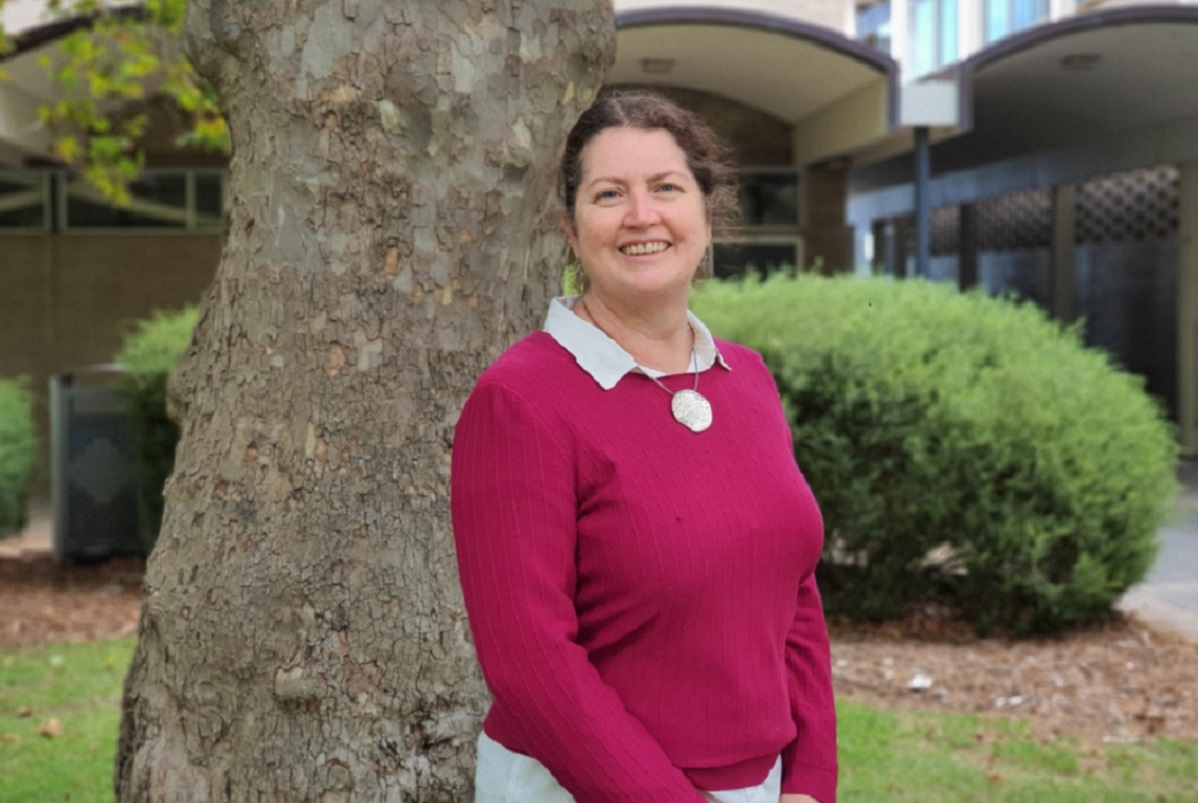
A profile on Professor Catherine Abbott between International Women’s Day (Sunday 8 March) and Flinders’ Lab Coat Challenge (tomorrow), provides an opportunity to understand Professor Abbott’s diverse science role following her early discoveries in the dipeptidyl peptidase field, together with an insight into work-life balance and where some of the challenges remain for women seeking to further their careers.
What prompted you to embark on your career path?
I grew up in the wilds of the Northern Territory and throughout my childhood was exposed heavily to the natural world, and I believe this is what drew me into a degree and a career in science.
When I enrolled as a PhD student nearly 30 years ago at the University of Sydney, my only goal was to have a job that I enjoyed. I never aspired or dreamt about an academic life or being a professor. However, about two years after finishing my PhD, I started waking up in the middle of the night designing experiments and realised if I wanted to continue working in the dipeptidyl peptidase field, I needed to establish my own laboratory. This desire to have my own research group is what really drew me to my academic role at Flinders.
What does your current work involve?
A typical day is spent designing experiments with a research student or a colleague, thinking about teaching or face-to-face teaching undergraduates. In addition to my teaching and research role in the College of Science and Engineering, I am the Higher Degree Research coordinator, so am passionate and actively involved in postgraduate research education at Flinders. My research is quite multidisciplinary and collaborative. I currently have projects developing a non-invasive breath test for human gut function, improving fish nutrition and examining the symbiotic relationship between clown fish and anemones.
What is one of your proudest achievements?
Apart from being a mum to my daughter, the achievement I feel most proud of is the role I have played in the training and mentoring of numerous research postgraduate students and undergraduate students that have gone into diverse STEM careers worldwide.
Can you describe a challenge in your life and how you overcame it?
One of the biggest challenges I have every day is achieving work-life balance. I think it is something that many face, in particular women who are focused on career progression. I don’t really have answers to this, it is a constant work in progress….My biggest advice would be take your four weeks holiday and don’t work when on holiday, I always remind myself that having “X was a great worker” is not what I would want on my tombstone!
Have you noticed many changes in the past decade or so that support career progression for women?
In South Australia we have our second female Chief Scientist, we also have in Australia our first female Chief Defence Scientist. In 2018 we had a female quantum physicist getting Australian of the Year. Recently, while discussing future career options with a past female PhD student, it suddenly dawned on me how lucky and privileged I am, particularly as a woman in science to have a tenured position as a Professor at Flinders University.
Internationally, the number of women in senior leadership positions in science is disproportional to men. Here at Flinders in Science and Engineering in 2020 we have nine Level E Female Professors and many other female academics at other levels.
The increasing visibility of women in senior roles across the science sector in both academia and industry will continue to serve as role models to our female undergraduates and post-graduates that science and engineering can offer rewarding careers for women.
I also believe that social media and the platform it offers for science communication and networking has increased the visibility for women in science and will continue to provide opportunities for mentoring and sponsorship, which will help support career progression for the next generation of females in STEM.
What do you think are some of the key hurdles that women in particular face?
Unconscious bias. There is increasing research suggesting that this an issue for women when applying for grants, submitting papers and when applying for jobs. This unconscious bias prevents many women from developing the CVs required to build and stay in science careers. In addition, women often have careers and home responsibilities that make it harder to commit the time outside of work hours that is required to build and establish a career.
How do you relax or wind down after a busy week?
When not watching my daughter playing sport, I can be found at the gym, out bush-walking, reading either my monthly book club book or young adult fiction. I also enjoy good food and cooking and travelling.

